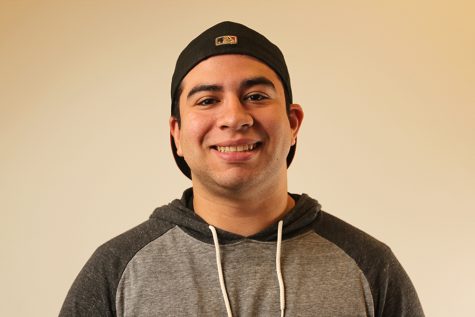Film raises awareness about autism, stigmas
Workshop enlightens attends, explains disability, hardships
Nov 3, 2016
As part of Disability Awareness Month in October, Disabled Students’ Programs and Services (DSPS) showed a film about people with autism in the Library Resource and Learning Center Thursday from noon until 1 p.m.
“Autism involves a wide spectrum (of conditions). You can be slow, yet smart,” Ruth Gorman, DSPS counselor said.
All of the students who attended the workshop at Contra Costa College were informed by professors that attending the film was a great opportunity to learn about a disability that is still misunderstood.
Gorman opened the workshop by informing students about what it is like to live with autism.
She said the condition exists on a wide spectrum, and it can be very noticeable or not detectable at all.
She mentioned a former student who was on the autism spectrum.
She said he taught himself Japanese.
She describes people with the disabilities by saying that some are unable to understand social cues from other people and some can lack a sense of empathy toward others.
She said people with autism are seeking acceptance and inclusion.
The film, “Oops, Wrong Planet,” follows Stephen Ramsey, who takes a questionnaire and through that, discovers he is autistic.
Ramsey traveled around the world talking to many doctors who studied the disorder as well as actual autistic men and women.
The film also discusses many stories of successful people and famous scientists who live with the disorder.
At the end of the workshop, Gorman opened the floor to audience members who had questions about the disorder.
Students were interested about the mindset of the people who have the condition.
A student asked if most people with autism have the same emotional reactions as other people. Gorman said, “They do have their feelings hurt, but they don’t understand other people’s emotions.”
Health and human services major Trixy Arambulo said she has people in her family with autism and the best you can do for them is have acceptance and support them.
Gorman said she believes all of the students who are on the spectrum need support, especially in education with them being referred to other teachers when progress in the classroom does not seem to be moving along as expected.
She said they excel in noticing the small details in things that you can barely comprehend, but when it comes to creativity, such as in literature or working with others, things become difficult. Former special education professor Stephen Jackson said she has experience working with children who have autism.
He said he noticed how the disability affected their education but in some cases were just as capable or even at a higher level than their able-bodied peers.
“What was fascinating was how autism got in the way of their academic abilities and caused them to appear to be lower-functioning than they actually were,” Jackson said.
“The best strategy I found was to identify certain things they became fixated on. Be it cartooning, basketball or karate, I would use these interests as a bridge, both socially and academically, between the student and the classwork — and then beyond to their classmates.”
Middle College High School counselor Barry Barbour said it is rough for students who are more autistic than others, especially in high school where there is a lot of interaction.
Visiting professor Jackie Alarcon said there are no problems with her students who are on the autism spectrum. She said every student should be treated equally regardless if they are a person with a disability.
“It doesn’t mean that those students are ‘weird,’” Alarcon said. “Their social cues are different, or maybe we are the weird ones and could learn a few things from them.”


